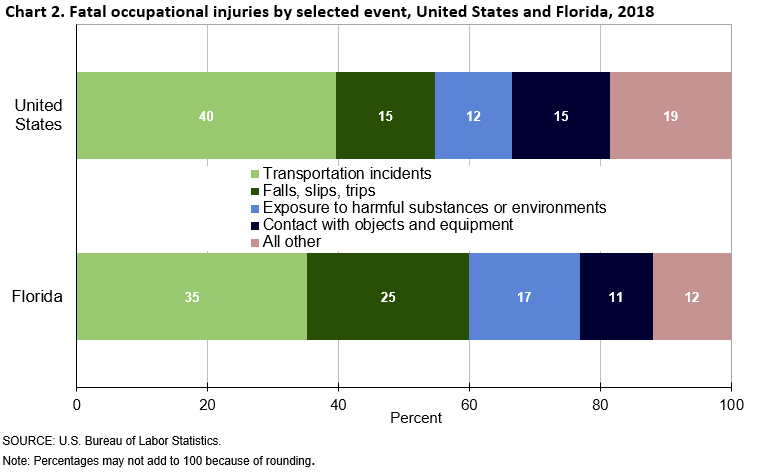Workers compensation self insured vs fully insured information
Home » Trend » Workers compensation self insured vs fully insured informationYour Workers compensation self insured vs fully insured images are ready in this website. Workers compensation self insured vs fully insured are a topic that is being searched for and liked by netizens today. You can Find and Download the Workers compensation self insured vs fully insured files here. Get all free images.
If you’re looking for workers compensation self insured vs fully insured pictures information connected with to the workers compensation self insured vs fully insured interest, you have come to the right site. Our site always gives you suggestions for seeking the maximum quality video and picture content, please kindly hunt and locate more enlightening video articles and images that fit your interests.
Workers Compensation Self Insured Vs Fully Insured. All compensation to their employees for “allowed claims” are paid out by the ohio bureau of workers’ compensation (bwc); Annual payroll of at least $2,000,000, total assets of $50,000,000 (or a cash flow ratio of at least 0.25), and. What is the difference between self insured and fully insured? Workers’ compensation cases are governed by the industrial insurance act, which was created to provide benefits to workers and their dependents for disabilities or deaths caused by industrial injuries or occupational.
 Lawson Risk Management Delivering Real Benefits to Self From lawsonrisk.com.au
Lawson Risk Management Delivering Real Benefits to Self From lawsonrisk.com.au
In this example, your deductible is $500 per year, per employee. Both offer more particularly tailored plans to their employees. Workers’ compensation cases are governed by the industrial insurance act, which was created to provide benefits to workers and their dependents for disabilities or deaths caused by industrial injuries or occupational. Program is fully insured and insurer pays all losses. State fund employers pay premiums directly to the state’s workers’ compensation fund. Employers will use this as an alternative to a fully insured plan because of the assumption of lower costs.
A fully insured contract transfers the risk of loss to an insurance carrier in exchange for a fixed premium paid to the carrier by the employer.
State fund employers pay premiums directly to the state’s workers’ compensation fund. Moreover, both avoid at least some of the fees and premiums associated with participating fully in. Employers will use this as an alternative to a fully insured plan because of the assumption of lower costs. In this example, your deductible is $500 per year, per employee. With a fully insured plan, the risk falls on the insurance company. Insured pays all losses and seeks reimbursement from excess carrier for payments above specific claims retention.
 Source: eticed.com
Source: eticed.com
Program is fully insured and insurer pays all losses. One of the biggest differences between fully insured plans and self insured plans is who assumes all the risk. Insured is responsible for claims within the specific claims deductible. Both offer more particularly tailored plans to their employees. What is the difference between self insured and fully insured?
 Source: onlineattorney.org
Source: onlineattorney.org
Must have conducted business in arizona for. State fund employers pay premiums directly to the state’s workers’ compensation fund. Workers’ compensation cases are governed by the industrial insurance act, which was created to provide benefits to workers and their dependents for disabilities or deaths caused by industrial injuries or occupational. Must have conducted business in arizona for. All compensation to their employees for “allowed claims” are paid out by the ohio bureau of workers’ compensation (bwc);
 Source: tarareck.com
Source: tarareck.com
A fully insured contract transfers the risk of loss to an insurance carrier in exchange for a fixed premium paid to the carrier by the employer. Businesses that have self insured plans must pay for employee medical claims and associated fees from their own general assets. Insured is responsible for claims within the specific claims deductible. All compensation to their employees for “allowed claims” are paid out by the ohio bureau of workers’ compensation (bwc); With a fully insured plan, the risk falls on the insurance company.
 Source: plevinandgallucci.com
Source: plevinandgallucci.com
In this example, your deductible is $500 per year, per employee. One of the biggest differences between fully insured plans and self insured plans is who assumes all the risk. Employers will use this as an alternative to a fully insured plan because of the assumption of lower costs. Insured pays all losses and seeks reimbursement from excess carrier for payments above specific claims retention. Both offer more particularly tailored plans to their employees.
 Source: bbconnecticut.com
Source: bbconnecticut.com
Must have conducted business in arizona for. Program is fully insured and insurer pays all losses. With a fully insured plan, the risk falls on the insurance company. All compensation to their employees for “allowed claims” are paid out by the ohio bureau of workers’ compensation (bwc); Insured pays all losses and seeks reimbursement from excess carrier
 Source: whatdoesaforeclosureattorneydosetsuke.blogspot.com
Source: whatdoesaforeclosureattorneydosetsuke.blogspot.com
Businesses that have self insured plans must pay for employee medical claims and associated fees from their own general assets. Workers’ compensation cases are governed by the industrial insurance act, which was created to provide benefits to workers and their dependents for disabilities or deaths caused by industrial injuries or occupational. Employers will use this as an alternative to a fully insured plan because of the assumption of lower costs. All compensation to their employees for “allowed claims” are paid out by the ohio bureau of workers’ compensation (bwc); Must have conducted business in arizona for.
 Source: differencebetween.net
Source: differencebetween.net
All compensation to their employees for “allowed claims” are paid out by the ohio bureau of workers’ compensation (bwc); State fund employers pay premiums directly to the state’s workers’ compensation fund. What is the difference between self insured and fully insured? Employers will use this as an alternative to a fully insured plan because of the assumption of lower costs. A fully insured contract transfers the risk of loss to an insurance carrier in exchange for a fixed premium paid to the carrier by the employer.
 Source: fbabenefits.com
Source: fbabenefits.com
Let’s say you are 35 person company and your medical premiums are costing you $12,000 per year, per employee. Program is fully insured and insurer pays all losses. In this example, your deductible is $500 per year, per employee. While the risk falls on the insurance company in a fully insured plan, in a self insured plan the employer or company assumes most of the risk. With a fully insured plan, the risk falls on the insurance company.
 Source: molyneaux.com
Source: molyneaux.com
Must have conducted business in arizona for. State fund employers pay premiums directly to the state’s workers’ compensation fund. Annual payroll of at least $2,000,000, total assets of $50,000,000 (or a cash flow ratio of at least 0.25), and. Both offer more particularly tailored plans to their employees. One of the biggest differences between fully insured plans and self insured plans is who assumes all the risk.
 Source: networkwise.com
Source: networkwise.com
All compensation to their employees for “allowed claims” are paid out by the ohio bureau of workers’ compensation (bwc); In this example, your deductible is $500 per year, per employee. With a fully insured plan, the risk falls on the insurance company. Program is fully insured and insurer pays all losses. Insured is responsible for claims within the specific claims deductible.
 Source: iowaabi.org
Source: iowaabi.org
Program is fully insured and insurer pays all losses. In this example, your deductible is $500 per year, per employee. All compensation to their employees for “allowed claims” are paid out by the ohio bureau of workers’ compensation (bwc); In exchange for this monthly premium, the insurance company assumes all the risk when it comes to paying for a claim. Under a fully insured worker’s compensation plan, an employer will pay a premium to their insurance provider.
 Source: cutcompcosts.com
Source: cutcompcosts.com
The difference between self insured and fully insured. All compensation to their employees for “allowed claims” are paid out by the ohio bureau of workers’ compensation (bwc); Program is fully insured and insurer pays all losses. One of the biggest differences between fully insured plans and self insured plans is who assumes all the risk. In exchange for this monthly premium, the insurance company assumes all the risk when it comes to paying for a claim.
 Source: recklaw.com
Source: recklaw.com
Workers’ compensation cases are governed by the industrial insurance act, which was created to provide benefits to workers and their dependents for disabilities or deaths caused by industrial injuries or occupational. Moreover, both avoid at least some of the fees and premiums associated with participating fully in. The rationale is that the large employee population can help the management spread the risk. Under a fully insured worker’s compensation plan, an employer will pay a premium to their insurance provider. Insured pays all losses and seeks reimbursement from excess carrier
 Source: enquiron.com
Source: enquiron.com
The rationale is that the large employee population can help the management spread the risk. What is the difference between self insured and fully insured? Program is fully insured and insurer pays all losses. Insured is responsible for claims within the specific claims deductible. Businesses that have self insured plans must pay for employee medical claims and associated fees from their own general assets.
 Source: insurancesusall.blogspot.com
Source: insurancesusall.blogspot.com
With a fully insured plan, the risk falls on the insurance company. Insured is responsible for claims within the specific claims deductible. Insured pays all losses and seeks reimbursement from excess carrier for payments above specific claims retention. Businesses that have self insured plans must pay for employee medical claims and associated fees from their own general assets. The difference between self insured and fully insured.
 Source: suretybondauthority.com
Source: suretybondauthority.com
Under a fully insured worker’s compensation plan, an employer will pay a premium to their insurance provider. Insured is responsible for claims within the specific claims deductible. Workers’ compensation cases are governed by the industrial insurance act, which was created to provide benefits to workers and their dependents for disabilities or deaths caused by industrial injuries or occupational. Insured is responsible for claims within the specific claims deductible. In this example, your deductible is $500 per year, per employee.
 Source: slideshare.net
Source: slideshare.net
Let’s say you are 35 person company and your medical premiums are costing you $12,000 per year, per employee. Let’s say you are 35 person company and your medical premiums are costing you $12,000 per year, per employee. The difference between self insured and fully insured. The rationale is that the large employee population can help the management spread the risk. Workers’ compensation cases are governed by the industrial insurance act, which was created to provide benefits to workers and their dependents for disabilities or deaths caused by industrial injuries or occupational.
 Source: lawsonrisk.com.au
Source: lawsonrisk.com.au
Insured is responsible for claims within the specific claims deductible. While the risk falls on the insurance company in a fully insured plan, in a self insured plan the employer or company assumes most of the risk. Insured is responsible for claims within the specific claims deductible. The difference between self insured and fully insured. Insured is responsible for claims within the specific claims deductible.
This site is an open community for users to do submittion their favorite wallpapers on the internet, all images or pictures in this website are for personal wallpaper use only, it is stricly prohibited to use this wallpaper for commercial purposes, if you are the author and find this image is shared without your permission, please kindly raise a DMCA report to Us.
If you find this site beneficial, please support us by sharing this posts to your own social media accounts like Facebook, Instagram and so on or you can also save this blog page with the title workers compensation self insured vs fully insured by using Ctrl + D for devices a laptop with a Windows operating system or Command + D for laptops with an Apple operating system. If you use a smartphone, you can also use the drawer menu of the browser you are using. Whether it’s a Windows, Mac, iOS or Android operating system, you will still be able to bookmark this website.

Category
Related By Category
- Vicarious liability insurance definition Idea
- Staples insurance information
- Youi car insurance claim Idea
- T mobile insurance for iphone x information
- Shelter insurance fayetteville ar information
- Roger smith insurance Idea
- Scotia insurance eastern caribbean limited Idea
- Toronto condo insurance average rates information
- Sell life insurance policy calculator Idea
- Velox insurance hiram information